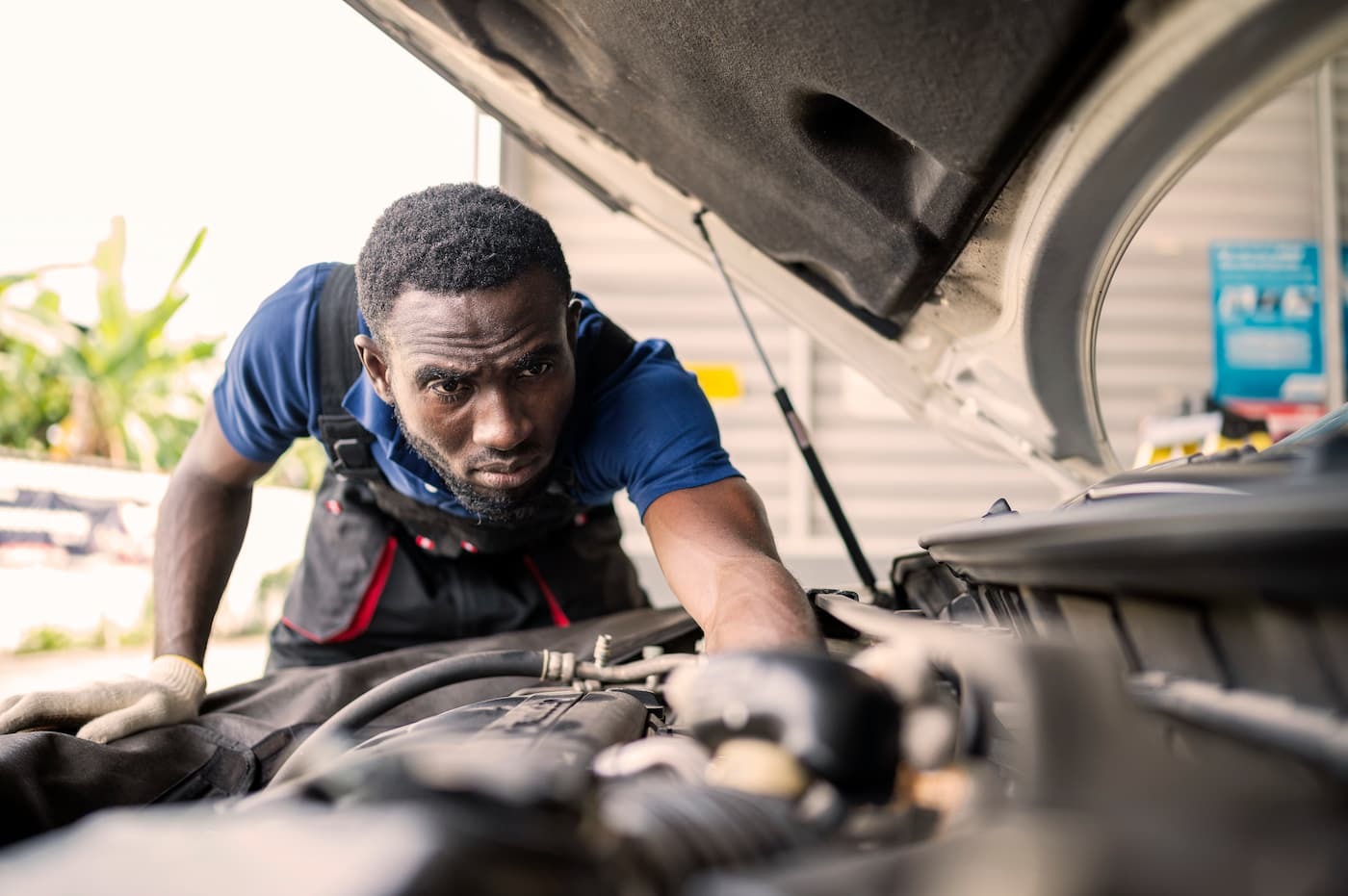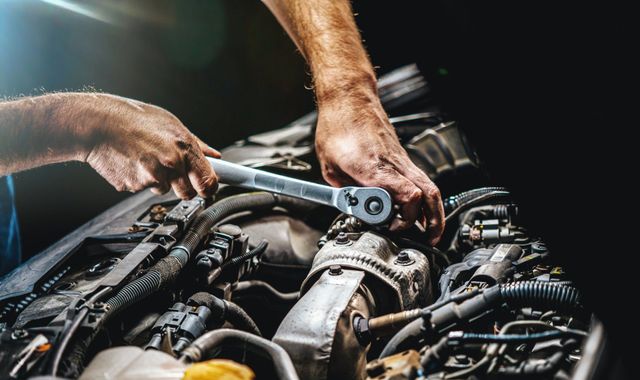All Categories
Featured
When your automobile overheats, it can feel like a significant emergency, but staying tranquil and following the ideal actions can prevent significant engine damages and help obtain you back when traveling safely. In this message, we'll explore what to do if your cars and truck overheats and offer preventative suggestions to decrease the threat of overheating in the future.
If Your Vehicle Gets too hot,What to Do. If your auto begins to overheat is to draw over to a safe spot as soon as feasible, draw Over to a Safe Place The initial and most crucial action. Transform on your risk lights and assist your car to the shoulder or into a parking whole lot. Maintaining your cars and truck running while it's overheated can create serious damages to the engine, so it's crucial to close the engine off immediately.
Allow the Engine Cool Off Once you've securely quit, allow the engine to cool off. You need to never try to open the radiator cap while the engine is still hot, as the launch of vapor or warm coolant can create burns. Wait at the very least 15-20 minutes to allow the engine temperature to drop to a much safer degree before continuing.
![]()
Check the Coolant Level After the engine has actually cooled down, inspect the coolant levels by evaluating the reservoir or radiator. Leading it off with a combination of coolant and water (as specified by your automobile's producer) if it's low. Constantly make use of care when opening up the coolant reservoir, as pressure might have accumulated.
Seek Visible Leakages While you wait for the engine to cool down, visually check the radiator, tubes, and coolant storage tank for any kind of noticeable leaks or cracks. A leaking radiator or hose pipe is an usual source of overheating. It's better to call a tow service than threat driving even more and creating added damages. if you discover a substantial leak.
Restart the Engine After permitting the engine to cool and making sure the coolant is rounded off, begin the engine and keep track of the temperature gauge. If the temperature continues to climb quickly, it's best to shut the engine off and ask for roadside help or a tow to the closest mechanic.
![]()
Exactly How to stop Getting Too Hot in the Future. Consistently Examine Coolant Levels One of the most convenient methods to stop getting too hot is by keeping the right degree of coolant. In time, coolant can vaporize, so routinely examine the coolant degrees in the tank. Low coolant levels can trigger the engine to get too hot promptly, so leading it off as required.
Examine the Radiator The radiator plays an important role in maintaining the engine cool. Regularly examine the radiator for any kind of obstructions, dirt, or debris that can block airflow. If you observe any indications of damages, such as corrosion or leakages, have it repaired or changed immediately.
The thermostat regulates the flow of coolant, while the water pump flows it with the engine. If either component is damaged, it can stop appropriate cooling.
Flush the Air conditioning System With time, coolant can degrade and end up being inefficient, creating a buildup of debris in the system. Flushing the cooling system every 30,000 miles, or as advised in your car's handbook, helps to get rid of any sludge or accumulation and makes certain the cooling system is functioning properly.
Display the Problem of the Pipes The tubes in your car's cooling system can break or split with time. Inspect the hose pipes for any kind of indicators of wear, such as bulging, cracks, or leaks, and change them if required. Preventing coolant leaks can go a long way in preventing overheating.
![]()
Drive Responsibly Hostile driving, such as increasing quickly or driving at broadband, places added pressure on your engine and its cooling system. Try to drive at moderate speeds, especially on hot days or when driving on high inclines, to lower the possibilities of overheating.
Prevent Straining Your Car Lugging extreme weight in your car puts stress on the engine and cooling system. Always bear in mind your lorry's weight limitation, particularly if you're transporting hefty lots, hauling a trailer, or driving cross countries in hot weather condition.
Conclusion. A getting too hot cars and truck can be a frightening experience, but understanding just how to react and prevent it can save you time, cash, and prospective engine damages. Constantly check your coolant levels, evaluate essential components like the radiator, thermostat, and hoses, and adhere to a routine upkeep schedule. By remaining on top of your car's air conditioning system, you can lower the risk of getting too hot and take pleasure in a smoother, safer driving experience.
If Your Vehicle Gets too hot,What to Do. If your auto begins to overheat is to draw over to a safe spot as soon as feasible, draw Over to a Safe Place The initial and most crucial action. Transform on your risk lights and assist your car to the shoulder or into a parking whole lot. Maintaining your cars and truck running while it's overheated can create serious damages to the engine, so it's crucial to close the engine off immediately.
Allow the Engine Cool Off Once you've securely quit, allow the engine to cool off. You need to never try to open the radiator cap while the engine is still hot, as the launch of vapor or warm coolant can create burns. Wait at the very least 15-20 minutes to allow the engine temperature to drop to a much safer degree before continuing.

Check the Coolant Level After the engine has actually cooled down, inspect the coolant levels by evaluating the reservoir or radiator. Leading it off with a combination of coolant and water (as specified by your automobile's producer) if it's low. Constantly make use of care when opening up the coolant reservoir, as pressure might have accumulated.
Seek Visible Leakages While you wait for the engine to cool down, visually check the radiator, tubes, and coolant storage tank for any kind of noticeable leaks or cracks. A leaking radiator or hose pipe is an usual source of overheating. It's better to call a tow service than threat driving even more and creating added damages. if you discover a substantial leak.
Restart the Engine After permitting the engine to cool and making sure the coolant is rounded off, begin the engine and keep track of the temperature gauge. If the temperature continues to climb quickly, it's best to shut the engine off and ask for roadside help or a tow to the closest mechanic.

Exactly How to stop Getting Too Hot in the Future. Consistently Examine Coolant Levels One of the most convenient methods to stop getting too hot is by keeping the right degree of coolant. In time, coolant can vaporize, so routinely examine the coolant degrees in the tank. Low coolant levels can trigger the engine to get too hot promptly, so leading it off as required.
Examine the Radiator The radiator plays an important role in maintaining the engine cool. Regularly examine the radiator for any kind of obstructions, dirt, or debris that can block airflow. If you observe any indications of damages, such as corrosion or leakages, have it repaired or changed immediately.
The thermostat regulates the flow of coolant, while the water pump flows it with the engine. If either component is damaged, it can stop appropriate cooling.
Flush the Air conditioning System With time, coolant can degrade and end up being inefficient, creating a buildup of debris in the system. Flushing the cooling system every 30,000 miles, or as advised in your car's handbook, helps to get rid of any sludge or accumulation and makes certain the cooling system is functioning properly.
Display the Problem of the Pipes The tubes in your car's cooling system can break or split with time. Inspect the hose pipes for any kind of indicators of wear, such as bulging, cracks, or leaks, and change them if required. Preventing coolant leaks can go a long way in preventing overheating.

Drive Responsibly Hostile driving, such as increasing quickly or driving at broadband, places added pressure on your engine and its cooling system. Try to drive at moderate speeds, especially on hot days or when driving on high inclines, to lower the possibilities of overheating.
Prevent Straining Your Car Lugging extreme weight in your car puts stress on the engine and cooling system. Always bear in mind your lorry's weight limitation, particularly if you're transporting hefty lots, hauling a trailer, or driving cross countries in hot weather condition.
Conclusion. A getting too hot cars and truck can be a frightening experience, but understanding just how to react and prevent it can save you time, cash, and prospective engine damages. Constantly check your coolant levels, evaluate essential components like the radiator, thermostat, and hoses, and adhere to a routine upkeep schedule. By remaining on top of your car's air conditioning system, you can lower the risk of getting too hot and take pleasure in a smoother, safer driving experience.
Latest Posts
Explore Brake Repair & More: Full Repair Options from Montclare Auto Repair
Published May 23, 25
1 min read
Signs When Your Car Needs Expert Vehicle Service at Montclare Auto Repair
Published May 22, 25
1 min read
Discover the Top Auto Repair Offers in Montclare, Chicago
Published May 21, 25
1 min read
More
Latest Posts
Explore Brake Repair & More: Full Repair Options from Montclare Auto Repair
Published May 23, 25
1 min read
Signs When Your Car Needs Expert Vehicle Service at Montclare Auto Repair
Published May 22, 25
1 min read
Discover the Top Auto Repair Offers in Montclare, Chicago
Published May 21, 25
1 min read